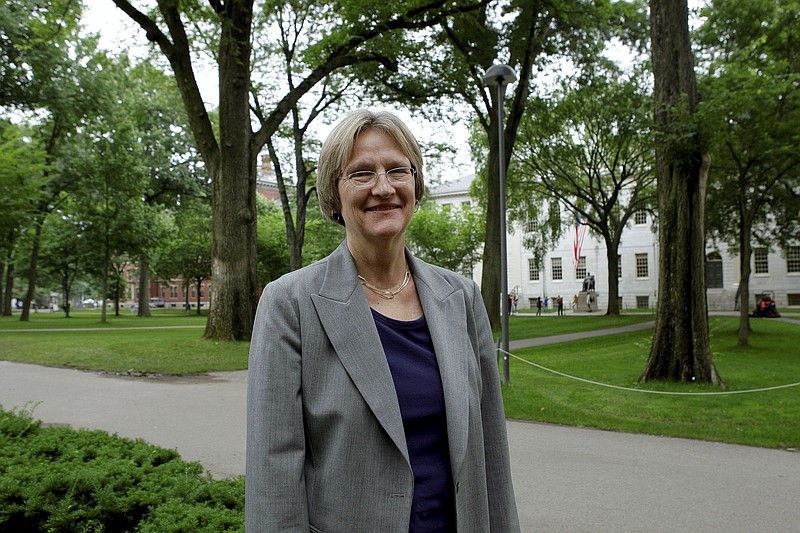We often have bemoaned the increasing lack of tolerance on today's college campuses and the desire to smother opinions that differ from the liberal worldview of the majority of teachers and administrators in higher education.
The worldview, frankly, is not new. The ivy-covered halls of colleges and universities have been the home of radical and nontraditional thought for years but especially since the presidential administration of Franklin D. Roosevelt. But not all of that is bad.
Students should be exposed to all manner of thought in higher education. Opinions different from the often conservative households and traditional values with which students are raised challenge them, provoke them to consider why they think as they do and assist them in confirming the beliefs they hold or in revising those beliefs.
In what now seems old-fashioned but was the norm only a few short years ago, students felt free to express whatever opinions they held and were encouraged to back up what they had to say.
But today, in many institutions of higher learning, a student's opinion is valued only if it agrees with that of the professor, whose worldview must match the prevailing viewpoint of the school.
The intolerance goes well beyond the classroom, too. As we've noted often over the past several years, speakers with conservative opinions and organizations with traditional values are not welcome on many campuses.
Indeed, as Queens-based attorney, writer and former New York City Council candidate Dennis Saffran points out in City Journal, at Harvard University the movement now has become clearly discriminatory.
Beginning with the current semester at the Cambridge, Mass., school, students who hold membership in what are called "unrecognized single-gender social organizations" (fraternities, sororities or other social clubs) may be punished.
In 1984, fraternities, sororities and other social clubs agreed - rather than change their rules - to separate from Harvard and have been independent since. But now students who are members of such organizations will be banned from holding leadership positions on athletic teams and other recognized college organizations and will be denied required endorsement letters for Rhodes and Marshall scholarships and other post-graduate fellowships.
Such groups, Harvard President Drew Gilpin Faust wrote in an explanatory letter in 2016, are "at odds with our deepest values" and "encourage a form of self-segregation."
Yet to be determined is how the school will police the policy since the organizations in question don't publish their membership lists. But, as Saffran explains, an implementation committee last spring recommended students seeking leadership positions on athletic teams and other recognized organizations or the post-grad honors state they don't belong to a single-gender club, have not belonged to one in the past year and will not belong to one after their leadership tenure is complete.
We see little difference in the recommendation from the days of the 1950s Red Scare when congressional witnesses were asked: "Are you now, or have you ever been, a member of the Communist party?"
Violators at Harvard who have "falsely affirm[ed] compliance," under the recommendation, would be investigated by the Honor Council.
Lest you think this is just Harvard, a private university and already a bastion of liberalism, think again. Saffran cited two schools, in the weeks after Harvard finalized its new policy, denied recognition to conservative student groups.
The University of Virginia initially turned down certification for a Young Americans for Freedom chapter ostensibly because it discriminated based on political affiliation by requiring members to support certain conservative principles, but lawyers for the organization persuaded the taxpayer- supported school to change its mind.
Meanwhile, private Wartburg University in Iowa would not permit official status to a proposed chapter of Turning Point USA because its values - educating "students about the importance of fiscal responsibility, free markets and limited government" - "were not in the line with the values of Wartburg College."
Saffran's article in the City Journal was titled "Then They Came for the Frats " It refers to a lecture passage by Martin Niemoller, who was a Protestant pastor, outspoken foe of Adolf Hitler and World War II concentration camp survivor, and his belief about the ordinary German Protestant's refusal to speak out in the face of the country's growing fascism under Hitler.
It concludes with the haunting phrase: "Then they came for me - and there was no one left to speak for me."
These discriminatory college actions are not widely publicized, just as the truth in pre-WWII Germany was not widely publicized, because their knowledge might hurt the prestige of the universities or see their donor funds drop. And a traditional national press, which has the same worldview as the administration at the schools, is not likely to help expose it.
Unfortunately, the problem is likely to get worse before it gets better - if it can get better. That's a chilling, scary and ominous thought but one about which we all should be concerned.
